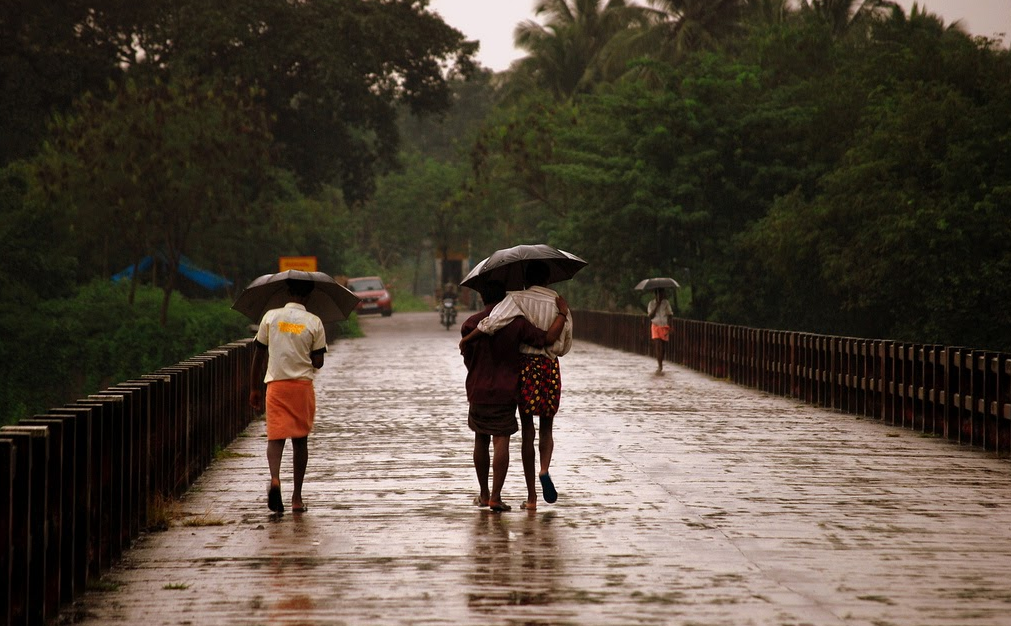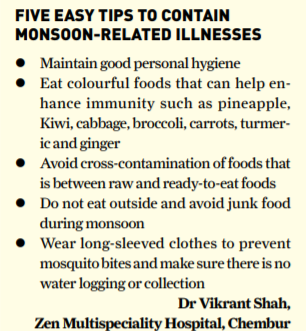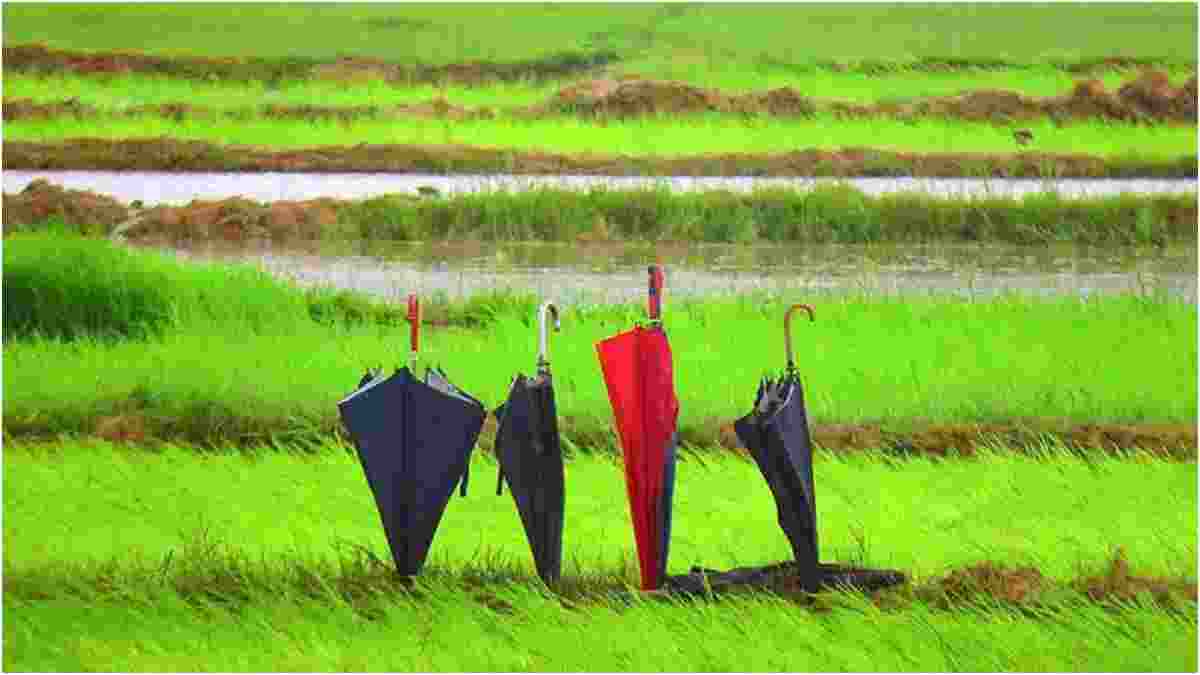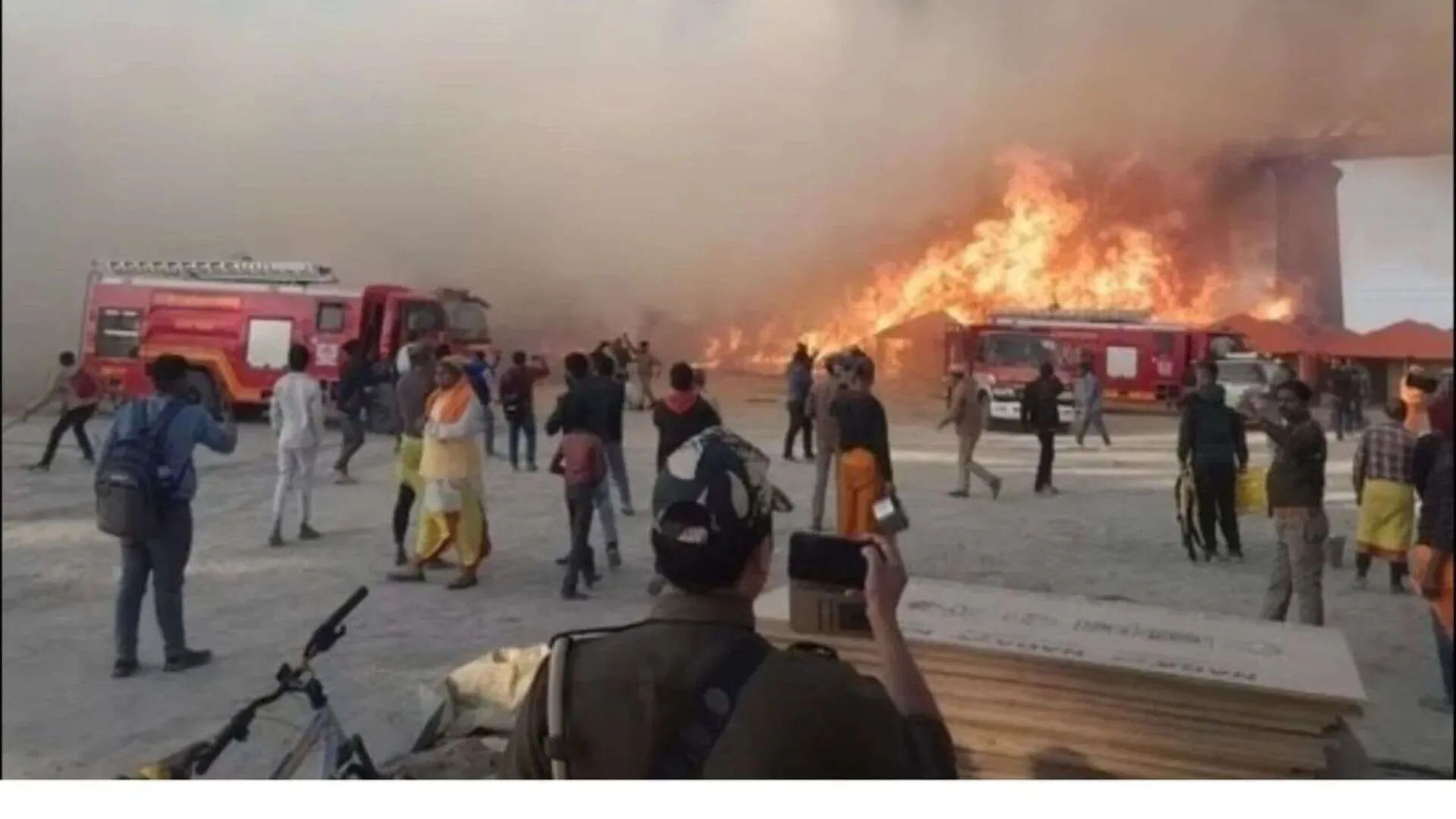Is there a link between climatic changes and coronavirus spread? It is debatable. But as per a study by researchers at IIT-Bhubaneswar and AIIMS-Bhubaneswar, temperature and relative humidity have a significant impact on the disease growth rate and doubling time. An analysis on relative humidity revealed that more moisture leads to a higher growth rate of Covid-19 cases and reduced doubling time. The study titled “Covid-19 spread in India and its dependence on temperature and relative humidity” showed that seasonality in environmental factors does play a role in the dynamics of coronavirus spread. As rain is wreaking havoc in India, monsoonrelated illnesses like dengue, leptospirosis, malaria and gastric problems, coupled with the corona scare, are acting as a catalyst to the ongoing misery.
Temperature and humidity are inversely correlated with daily new cases and deaths of Covid-19, revealed findings of a research. For every 1°C increase in temperature, daily new cases of Covid-19 reduce by 3.08% and daily new deaths reduced by 1.1 % and for every 1% increase in humidity, daily new cases of Covid-19 reduced by 0.85% and daily new deaths reduced by 0.51%, according to analyses of 166 countries.

“Most respiratory viruses exhibit a seasonal trend of infection, such as the influenza virus, SARS-CoV. In 2019, the study Association between viral seasonality and meteorological factors demonstrated that the respiratory syncytial virus and influenza A virus exhibited obvious seasonality, peaking in November-December and December-January, respectively. However, Covid-19 is in a stage of high infectivity and rapid transmission. Furthermore, the effect of temperature and humidity on Covid-19 transmission is not sufficient to fully inhibit the pandemic,” says Dr Rajiv Dang, senior director and HoD, Internal Medicine, Max Hospital, Gurgaon.
Studies have reported that SARS-CoV-2 is sensitive to high temperature and humidity. Under experimental conditions, the stability of SARS-CoV-2 was similar to that of SARS-CoV, reporting that at temperatures of 22- 25°C and relative humidity of 40%-50%, dried SARSCoV could survive for over five days on smooth surfaces. The temperature and humidity are inversely correlated with daily new cases and deaths of Covid-19. The spread of any viral infection depends on factors such as seasonal changes, human behavioural patterns and even the characteristics of the virus.
Dr Vikrant Shah, consulting physician, intensivist and infectious disease specialist, Zen Multispeciality Hospital, Chembur, opines: “Coronavirus can be termed as a respiratory illness with similar symptoms like flu and the cases of seasonal flu are said to increase during the monsoon months. And other monsoon-related illnesses would make the situation worse for patients and doctors as these would have similar presentations. Hence, one will have to adhere to the Covid-19 protocol.” The rainfall, those dropping temperatures and cooling of the atmosphere and the progression towards winter may environmentally favour the spread of coronavirus, adds Dr Harish Chafle, consultant intensivist, and chest physician, Global Hospital, Mumbai.
The pandemic has already put the entire healthcare system under insurmountable pressure, with frontline doctors and health workers putting their duty first to rescue the people from the deadly virus. In the meantime, the monsoon season also brings along with it scrub typhus, dengue, malaria, typhoid and cholera so our healthcare system is going through a dual crisis. Malaria, dengue and chikungunya, the vector-borne diseases are posing a challenge at a time when the medical staff is overworked and overwhelmed battling a pandemic.
Dr Aviral Roy, consultant Critical Care & Internal Medicine, Medica Superspecialty Hospital, says, “With the monsoon followed by flood and natural calamities in certain areas of the country, the social distancing measures implemented by the authorities will have a propensity to break down. It also raises the chances of cross-contamination. The doctors are now dealing with two different types of cases — Covid-19 and fever due to water and vectorborne diseases. There is no special precautionary measure that can be taken besides maintaining proper hygiene and social distancing, wearing masks and regular hand sanitising.”
With over one million cases of Covid-19 in India and with the monsoon, the country is witnessing increased viral and protozoal infections. Incidentally, these infections present with symptoms such as fever, body pain and joint pain among others, similar to Covid-19 symptoms. “The medical fraternity has to be extra careful so that they don’t miss the diagnosis of these infections. People are taking due measures to control coronavirus spread. But for the vector-borne diseases, mosquito breeding needs to be controlled,” says Dr Navneet Kaur, general physician, Apollo Spectra hospital Delhi.
Water-logging in slums is a common sight every year during monsoon, especially in Mumbai, Gujarat and other areas where monsoon fury creates havoc. But this time the crisis is more severe due to Corona. Evidently so, heavy rain has heightened the fears of the underprivileged of contracting Covid-19 and other monsoon-related illnesses. The monsoon season comes with its own set of problems which add to the fear around the pandemic. Most people who are destitute do not even understand what coronavirus is and worry that even having low-grade fever indicates Covid-19, there is still a lack of awareness on the ground level.
“Underprivileged families live in tents and open shelters that do not provide adequate protection from water-logging. The heavy rain adds to their woes and makes them exposed to water-borne diseases. Due to this lack of awareness, people tend to jump to conclusions. In one of the shelter homes supported by our NGO, a man complained of acute stomach pain and was running low-grade temperature. While he was rushed to the doctor, everyone at the centre was alarmed as they thought he had Covid-19. He was tested and the doctors ascertained that it was gastroenteritis,” says Dr Geetanjali Chopra, founder and president, Wishes and Blessings NGO. This just shows the complete lack of awareness on the ground level and the dangerous panic it can create.
Simple living holds relevance even in the times of corona. By adapting safe and preventive measures risks of seasonal diseases can be easily avoided. “By being conscious of your eating and drinking habits as well as clean surroundings over 95% of the infectionrelated issues could be prevented. Such individual efforts will help society in terms of reducing the burden on the country’s healthcare system. Even if one does get sick the system is there for the treatment which will be more effective if it is not overburdened with these infections,” says Dr Rajesh Kumar, Internal Medicines, Paras Hospital, Gurugram. In addition, to avoid catching these infections, avoid getting drenched in rain and wading through stagnant water or flooded areas. If you have any open wounds or cuts then clean it immediately, don’t eat fruits and vegetables that are kept cut for a longer period as they may carry bacteria.
Since many monsoon-related illnesses mimic symptoms of Covid-19 which is making people anxiously rushing to clinics/hospitals. Out-of-hospital care brands can share the burden of doctors battling Covid-19 cases. Dr Vishal Sehgal, medical director, Portea Medical, says, “While people have been cautious about visiting hospitals during the pandemic unless necessary, it is imperative to continue the same even during monsoons. Preventive measures are the key and people must ensure that they undertake teleconsultation services first. We have been making continuous efforts to lighten the burden on hospitals by providing teleconsultation and home-based healthcare services on demand. This ensures that hospital beds are reserved for those with critical illnesses or Covid-19 patients with complications.” He also adds that individuals and communities can opt for home isolation services in case they develop mild symptoms or are asymptomatic as well.
























